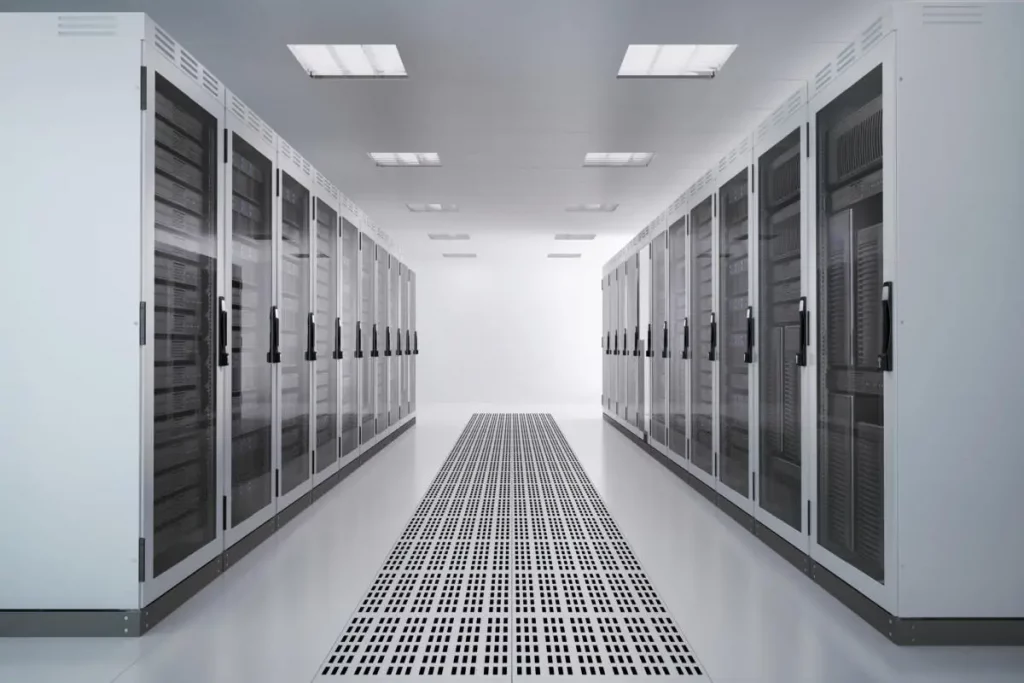There were a variety of reasons why servers, routers, and IT gear were formerly housed in-house, but that equipment has now been relocated to a distant data centre, essentially colocation services.
Collocate businesses acquire, administer, and maintain their own IT equipment. The data centre offers the physical structure, redundant power sources, cabinet space, blended bandwidth (Internet connectivity), and a secure environment (moisture, fire, smoke) – as well as electronic and physical security.
Consider what it takes to run an IT network in-house for a moment
There really are backup and security needs, personnel and monitoring issues, and bandwidth allocations to consider in addition to floor space. A few load-balanced T1s could formerly handle the load for even the most robust in-house networks, but that is no longer the case. Let’s not even get started on in-house systems that relied on ISDN, DSL, or Frame Relay. Today’s data centres commonly provide 100Mbps connections, with some even providing GigE uplinks.
Few data centres are now bound by a single backbone carrier, instead opting for a hybrid backbone made up of multiple carriers and fibre paths. At-house, this isn’t possible, but in a data centre, it is.
The barrier has always been a shortage of scalable connectivity — even, in certain cases, the connection’s own dependability. A bad part of in-house connections is that if your system is downtime, not only will your employees be unable to do their tasks, but your clients will also be unable to access your website. Unfortunately, some incoming connections combined voice and data lines on the same cable, resulting in the loss of phone calls. What is the value of a production hour in your company?
What about natural disasters?
Moisture levels, temperature increases, smoke detection, and other factors all trigger alarms in data centres. But unless you had these sorts of alarm structures in place onsite, how quickly can anyone from your IT department respond at 2 a.m.? Data centres alleviate this concern by having IT workers on hand 24 hours a day, 7 days a week, 365 days a year. That isn’t to say that disasters can’t happen; it just means that the time it takes to recover is much less.
I’ve really seen an in-house network go down since a package delivery man knocked a T1 connector slightly weird. Access to data centres is strictly monitored, and you will have the option of renting a private cage to store your servers in most data centres.
So, what exactly do you get when you use collocation?
Let’s start with BGP network connectivity, which will provide optimum online reliability and uptime for your company, followed by redundant power supplies such as a UPS and several diesel fuel generators. If your building loses power, you may be confident that your servers will remain up at the data centre.
Scalability
Collocation services may be quickly established and are incredibly scalable if you’re running out of physical space in-house or want a connection that isn’t available in your present location. If you need more bandwidth, perform some arithmetic first to avoid paying overage costs. Contract for the amount of time you may reasonably anticipate to utilize it.
Consider contracting on a 95th percentile basis if your bandwidth is infrequent. This provides you the option of choosing a 10Mbps package that can burst to higher speed on a 100Mbps uplink at times.
Advantages of Colocation:
- The danger of losing mission-critical data due to theft, vandalism, fire, floods, or power outages is considerably reduced.
- If the data centre is near to your firm, you may still work on your own equipment. This will save your company money on third-party labour and parts.
- The savings grow with time, at least as compared to dedicated servers.
- In both terms of rack space and connection, it’s quite expandable.
- It may be beneficial to display your servers as fixed assets on your balance sheet, depending on your accounting system, and you may factor in depreciation if you use the accrual approach.



